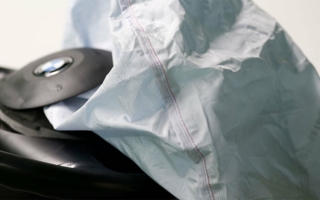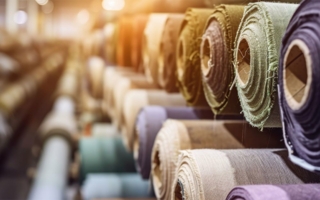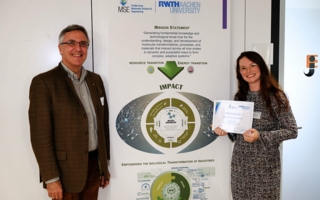04/04/2023 – Textile finishing
Textile industry under pressure to eliminate “forever chemicals”
Pressure is mounting on textile manufacturers to end the use of perfluoroalkyl and polyfluoroalkyl chemicals (PFAS), commonly referred to as “forever chemicals”. The State of California has banned the manufacture, distribution or sale of apparel and textiles that have these chemicals effective Jan. 1, 2025. New York State has also enacted a ban effective end of this year, and other states, including Washington, Colorado and Maine, are enacting bans of their own.
In January, the Oeko-Tex Association issued a general ban of PFAS in textiles, leather and footwear for its Standard 100, Leather Standard and Eco Passport certifications. Retailers area also joining this movement. In February, outdoor retailer REI announced that it would ban PFAS in all textile products from its suppliers.
The textile industry in transition
The expanding movement to ban these chemicals is creating opportunities for companies like Green Theme Technologies (GTT), an Albuquerque, New Mexico, company, which is developing “clean chemistries” and water-free processes targeting the textile industries. GTT is producing these innovative products under the Empel brand.
The textile industry is experiencing rapid change in terms of chemicals, says Martin Flora, vice president of business development at GTT.
“Things have really shifted from six years ago, when I came from the creative side of the industry with a degree in textile design. I could see that we were getting ready for a big change, and the early stages of fluorinated chemicals being banned were the front end of that change. Now, with the changes in legislation in the U.S. and Europe, the mills are very serious about it. It has created a tsunami of engagement to find a solution. It’s great to be on the front end of it. We are scrambling as hard as we can to keep up with the opportunity.”
Historically, Flora says, the global textile industry was founded on water with many processes requiring water.
“The whole foundation of using water as a solvent and a cleaning tool, comes from a time when water was readily available, 80 or 90 years ago. But now, people care saving energy, and about toxicity. They don’t want to drink toxic chemicals or have them in their clothing. Clean water has become scarce.”
Word of GTT’s success is spreading. Flora and other GTT staff members attended the Functional Fabric Fair in Portland, Oregon, in April, where discussions were held on the coming chemistry brands.
“One of the speakers was from a brand that uses our product, so they flashed on the screen our product, Empel,” Flora says. “It was the greatest thing, to be in a huge room of industry specific brands and mills, and our brand is shown as the solution to the problem.”
Flora describes Empel technology as a platform for applying an array of characteristics into textiles and apparel. Empel can apply a wide variety of finishes, including Durable Water Repellent, Anti-Wicking, Durable Stain Release to a wide variety of textiles.
“What we have is a way to affect fibers without using any water. We have more than just a water repellant product. We have a stain product, we have a product for shoes, to keep them from absorbing moisture. We have a new project we are working on called No Melt, which is a big project for the military. The technology is a platform, and we are getting a lot of big brand adoption now, globally.”
Green Theme operates a laboratory in Albuquerque, New Mexico, where the company conceives and develops technology ideas. The company also owns a commercial center in Taiwan, where products area scaled, to make sure they works in volume. When that is accomplished, Green Theme licenses the technology to mills around the world.
“We are having really great adoption from major brands like Nike, and super high performance outdoor brands like Black Diamond,” Flora says.
Other brands using Empel in apparel include TREW Gear, Stoney Creek, and Artilect.
You will find the full report by John McCurry in our print edition 2/2023. To subscribe click here.




